Type of Governors
- Centrifugal governors: Its action depends on the change of speed and centrifugal effect produced by the masses, known as governor balls, which rotate at a distance from the axis of rotation.
The valve is operated by the actual change of engine speed in the case of centrifugal governors.
- Inertia Governors: The positions of the balls are affected by the forces set up by an angular acceleration or deceleration of the spindle, in addition to centrifugal forces on the balls.
It is due to the rate of change of speed in case of inertia governors.
- Response of inertia governors is faster than that of centrifugal governors.
- In inertia governor, both forces i.e., centrifugal force and inertia force are in action.
Types of Centrifugal Governor
- Pendulum type — Watt governor (simplest)
- Loaded type

Porter Governor
If the sleeve of a Watt governor is loaded with a heavy mass, it becomes a Porter governor.
Let, M = Mass of the sleeve; f = Force of friction at the sleeve; θ = Angle between arm and spindle axis; β= Angle between link and spindle axis
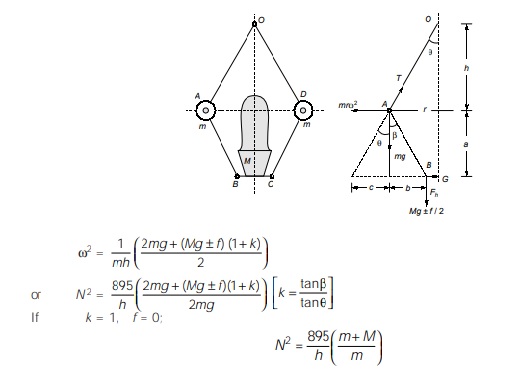
Proell Governor
A Porter governor is known as a Proell governor if the two balls (masses) are fixed on the upward extensions of the lower links which are in the form of bent links BAE and CDF shown in the below figure.
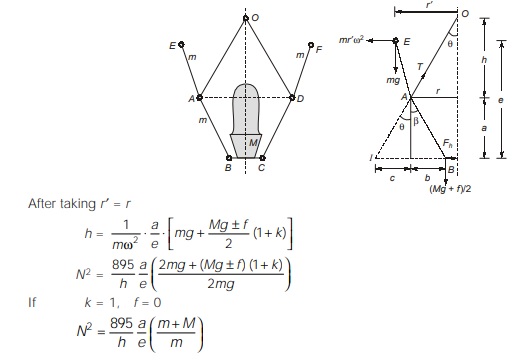
Hartnell Governor
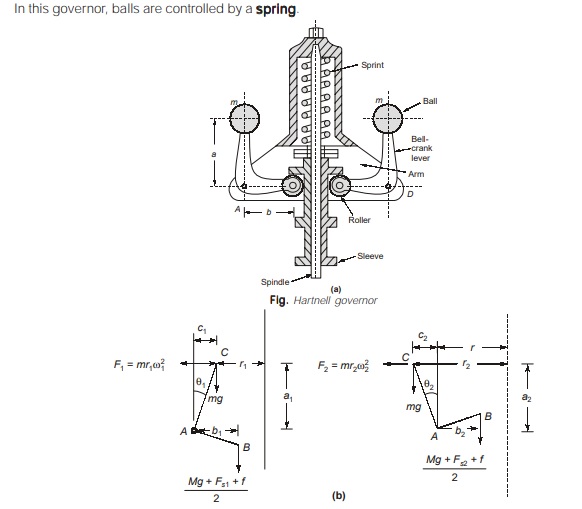
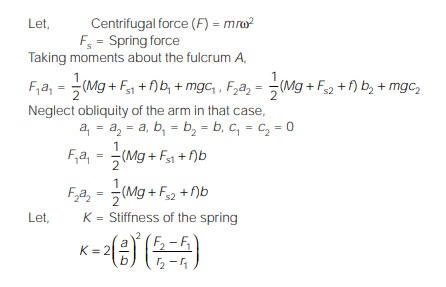
Pickering Governor
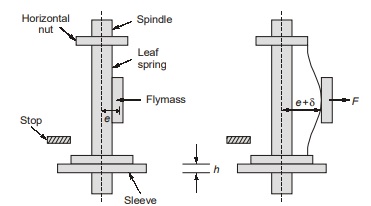
Let m = Mass fixed to each spring
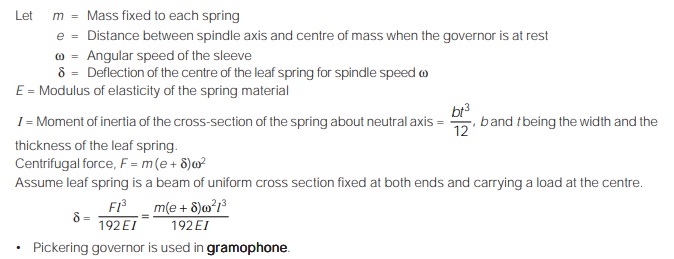
Sensitiveness of Governor
A governor is said to be sensitive when it readily responds to a small change in speed.
 when,
when,
N = Mean speed
N1 = Minimum speed corresponding to full load conditions.
N2 = Maximum speed corresponding to no-load conditions.
Hunting
Sensitiveness of a governor is a desirable quality. However, if a governor is too sensitive, it may fluctuate
continuously. This phenomenon of this fluctuation is pronounced as hunting.
Isochronism
A governor with sensitivity equal to infinity is treated as isochronous governor. For all position of sleeves, all governor has same speed.
Stability
A governor is said to be stable if it brings the speed of the engine to the required value and there is not much
hunting. The ball masses, occupy a definite position for each speed of the engine within the working range.
The stability and the sensitivity are two opposite characteristics.
Effort of Governor
The effort of the governor is the mean force acting on the sleeve to raise or lower it for a given change of speed. At constant speed, the governor is in equilibrium and the resultant force acting on the sleeve is zero. However, when the speed of the governor increases or decreases, a force is exerted on the sleeve which tends to move it. When the sleeve occupies a new steady position, the resultant force acting on it again becomes zero.
Power of Governor
The power of a governor is the work done at the sleeve for a given percentage change of speed.
Power = Effort of governor x displacement of sleeve
Controlling Force
Controlling force is equal and opposite to the centrifugal force and acts radially inwards. It is supplied by
- Gravity of mass of ball in case of watt governor.
- Gravity of mass of ball and dead weight of sleeve in case of porter and proell governor.
- Gravity of ball masses and spring force in hartnell and hartung governors.
- Controlling force curve for spring loaded governor.
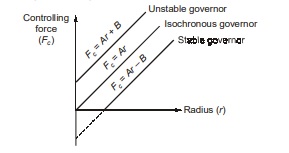
Where, A, B > 0
<< Previous | Next >>
Must Read: What is the Theory of Machines?

